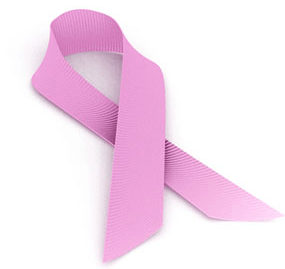Ghana government urged to include cervical cancer HPV vaccination in EPI programmes
 PATH, an international non-governmental organisation, has called on government to include cervical cancer HPV vaccination in the routine Expanded Programme on Immunization (EPI) to provide lifetime protection to girls against the disease.
PATH, an international non-governmental organisation, has called on government to include cervical cancer HPV vaccination in the routine Expanded Programme on Immunization (EPI) to provide lifetime protection to girls against the disease.
Dr K.O. Antwi-Agyei, Senior Technical Advisor at PATH, said rolling that out means girls who attained nine years of age would be vaccinated against cervical cancer just as was being done in routine childhood immunization for all children under five years to protect them against vaccine preventable diseases (VPD’s).
Cervical cancer is a type of cancer that occurs in the cells of the cervix – the lower part of the uterus that connects to the vagina. It is mostly caused by the sexually transmitted human papilloma virus (HPV).
He said the HPV vaccine currently was available in the private health sector, but it was very expensive, hence the need for government’s intervention to make it accessible for all as part of the routine immunization, which was free for all eligible persons.
Dr Antwi-Agyei made the call during an advocacy meeting organised by PATH for NGOs in Health to, among other things, discuss approaches that could be used to raise awareness about cervical cancer and the use of vaccination in the elimination of the disease in Ghana.
Data available showed that over 300,000 women die of cervical cancer globally each year, with 85 per cent of these deaths occurring in low- and middle-income countries, making the disease burden inequitable.
The disease is responsible for about one-quarter of all cancer deaths among Ghanaian women. A pilot HPV vaccination exercise conducted between 2013 and 2015 in Ghana showed that the vaccination was impactful and cost effective.
Dr Antwi-Agyei said cervical cancer was preventable with the use of vaccine and that it was detectable through screening and treatable if recognised early.
However, the country is yet to introduce the HPV vaccine nationally. In addition, screening of women is not being systematically done, leading to many cases being reported too late for treatment.
He said the introduction of the HPV vaccination would save the country some money invested in the healthcare system and reduce the financial burden on families, adding that “If the country is able to save the life of women through immunization, it will be a good preventive measure,” he stated.
The Technical Advisor explained that HPV vaccine was good, effective, safe, and cost effective and urged government to put in the necessary steps to include it in the EPI programme to ensure girls were given lifetime protection.
Dr Promise E. Sefogah, Consultant Obstetrician-Gynaecologist at SHAPE Healthcare, said cervical cancer occured mostly in women between age 35 and 44.
He said women and girls who had ever had sex were at higher risk of being infected.
He noted that even though HPV infection was common among women, studies had shown that the disease also affected men who could get penile cancer through HPV infection from sexual intercourse with an infected woman.
He called for screening among women at least once every two years for early detection of cervical cancer.
He also advised that those who tested negative during screening should get vaccinated to ensure maximum protection.
Dr. Sylvia Deganus, also a Consultant Obstetrician-Gynecologist, called for the implementation of the cervical cancer policy and advised that NGOs, traditional leaders, women’s fellowship leaders and other identifiable groups should get involved in public education to promote immunization against the disease, as its treatment was difficult and very expensive.
Ms Patience Dapaah, Senior Advocacy Advisor at PATH, said recent research had led to the development of a new type of HPV vaccine, which could be given as one dose and provided comparable level of protection as the ones given in two doses.
She urged women who could afford it to get vaccinated whilst government readied itself to introduce the vaccine publicly as part of routine EPI free of charge.
Ms Dapaah also advised girls and boys to abstain from sex to prevent not only pregnancy but sexually transmitted diseases and cervical cancer.
Source: GNA
